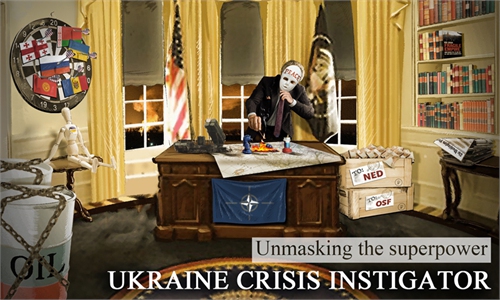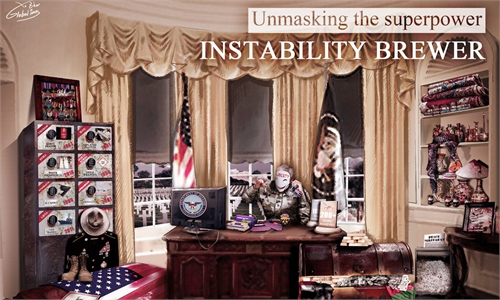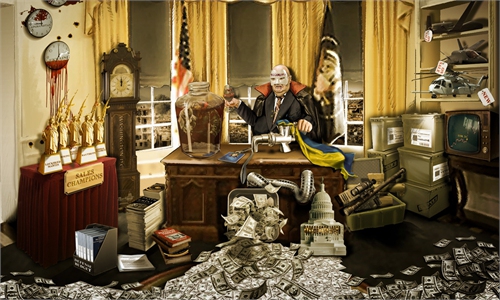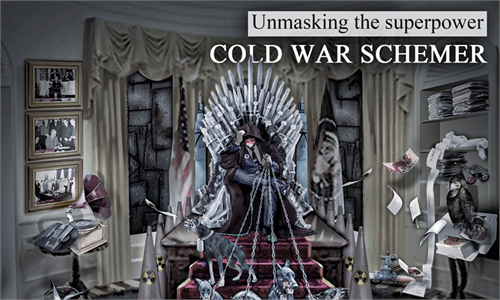90 percent of Chinese netizens believe the US is a bully in Ukraine crisis, coercive toward China: survey
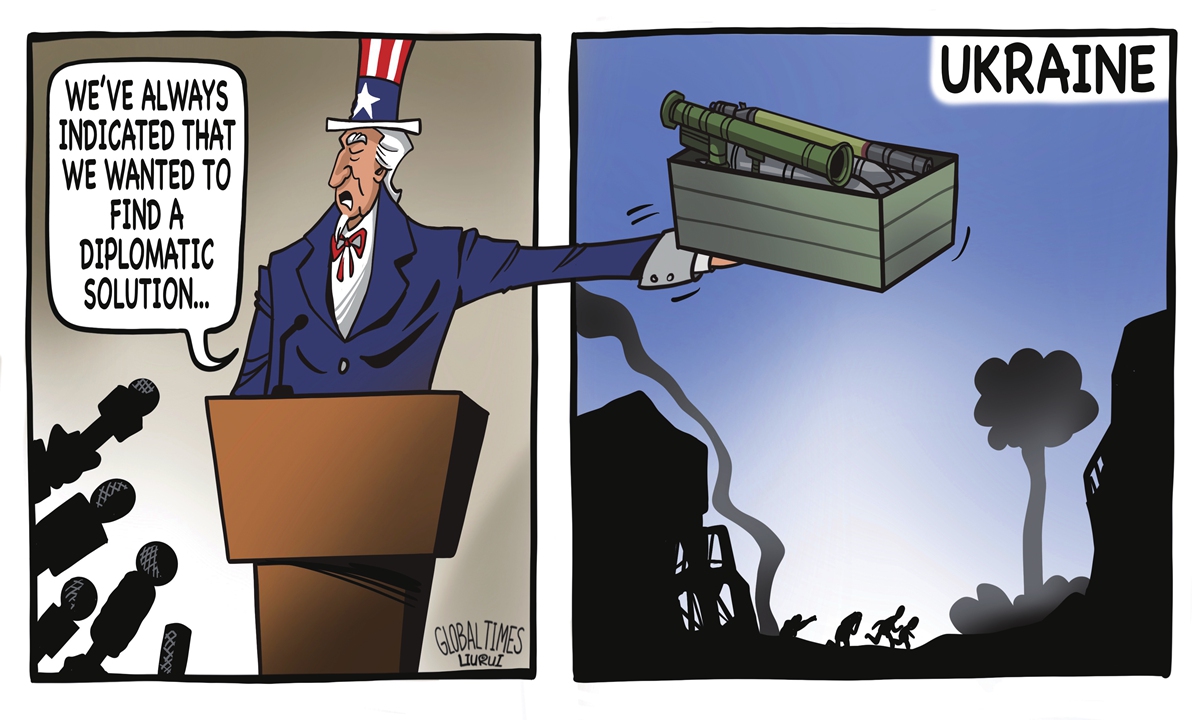
Illustration: Liu Rui/GT
Almost 90 percent of Chinese netizens believe the US is a hegemon and bully in the Ukraine issue, according to a latest survey conducted by the official Weibo account of Huanqiu.com.On March 30, Huanqiu's Weibo account launched a series of surveys asking netizens questions like "what's the role of the US in the Ukraine issue," "how to view the US threat of sanctioning China," and what they think of the "US Indo-Pacific Strategy."
Among the 12,000 responses received by Thursday, 89.2 percent of respondents believe the US is a hegemon and bully in the Ukraine issue. Only 5.6 percent, or 672 people, think the US is fair and just, while 5.2 percent said they are not sure.
During this crisis, the US and NATO, which hold the key to resolving the conflict, have not only failed to take practical actions to ease the situation, but instead further intensified the conflict by threatening to impose sanctions on China.
Among the 7,347 surveyed, 92.2 percent believe the US' threat of sanctioning China is a bullying and coercive behavior that cannot conceal its real intention. Only 4.2 percent believe the US aims at ending the war and promoting peace, and 3.6 percent said it is not clear.
In February, the White House released the Indo-Pacific Strategy, which attracted the attention of the international community. The US is vainly trying to build closer partnership with its allies in the Indo-Pacific region, and continues to incite China-related agendas on issues such as the South China Sea. The outdated Cold War zero-sum mentality and arrogant attitude of "America First" embedded in the strategy has made regional countries wary.
People were also asked whether they think the US' Indo-Pacific Strategy is an Indo-Pacific version of NATO. Among the 5,856 people surveyed, 5,207 or 89 percent said "yes," a minor 6.2 percent said "no" while 4.8 percent said it is not clear.
Some netizens commented under the survey, "The US is the only country among major powers which doesn't want peaceful negotiations between Russia and Ukraine." Others said, "The US has not achieved its goal for triggering the war, and it is bound to add fuel to the fire."
"Any excuse will serve a tyrant. The US tries to hide its shamelessness by exploiting public opinion to sanction China," a Weibo user commented. Another netizen reminded the others to "Look at the map. The thousands of military bases and biolabs set up by the US-led NATO have besieged China and Russia." Some said, "If NATO targets Russia, then the target of the Indo-Pacific Strategy is China."
China's Foreign Ministry spokesperson Wang Wenbin said on March 28 that China maintains that sanctions are not fundamentally effective ways to solve problems, noting China stands firmly against unilateral sanctions and long-arm jurisdiction with no basis in international law and no mandate of the UN Security Council. This is China's consistent position in both open and closed-door meetings. History shows that instead of solving problems, sanctions create new problems, he said.
"The problem now is not about who wants to help Russia circumvent the sanctions, but about the fact that the normal trade and economic exchanges between countries, China included, and Russia have already been unnecessarily hurt," said Wang, adding that China urges the US to take China's concerns seriously when handling the Ukraine issue and its relations with Russia and avoid undermining China's legitimate rights and interests in any way. China will take all necessary measures to firmly uphold the legitimate and lawful rights and interests of Chinese companies and individuals.
Zhao Lijian, another spokesperson, said at a press briefing on April 6 that in the past eight years from 2014, a group of countries, led by the US, imposed 8,068 sanctions designations on Russia, making it the most sanctioned country in the world followed by Iran. Since February 22 this year, 5,314 new sanctions designations have been slapped on Russia.
"The ongoing war and sanctions have incurred an influx of refugees, capital outflow and energy shortage in Europe, but enabled the US to earn profit and make a fortune," Zhao pointed out.
Global Times
